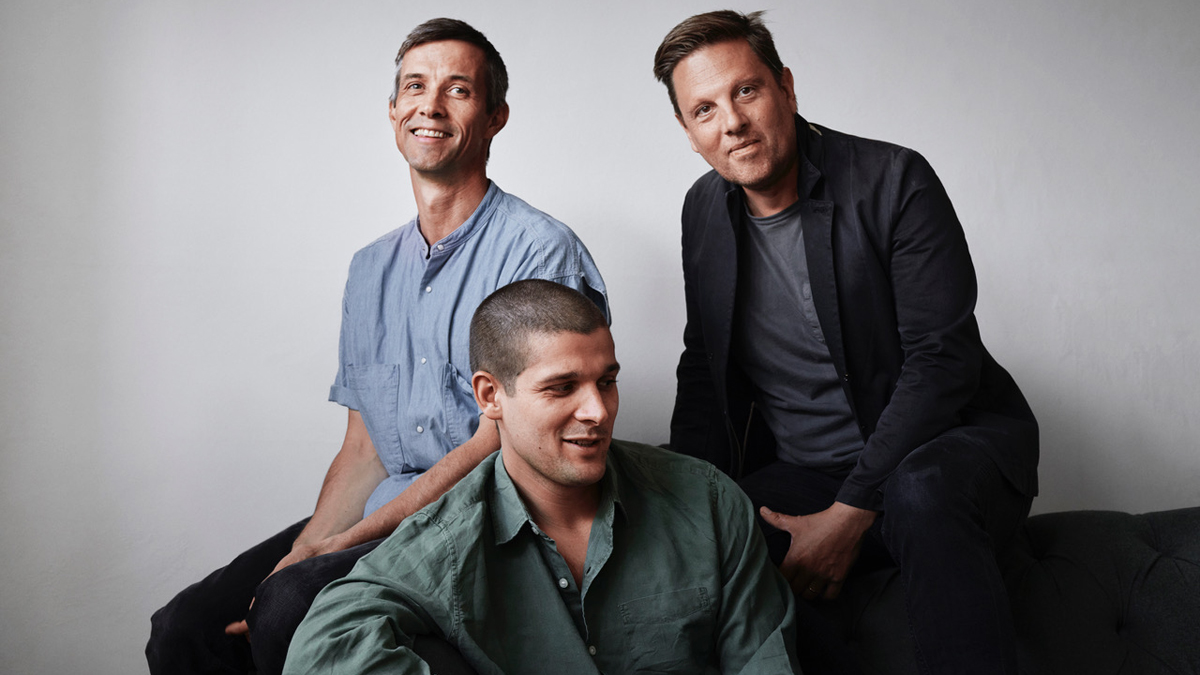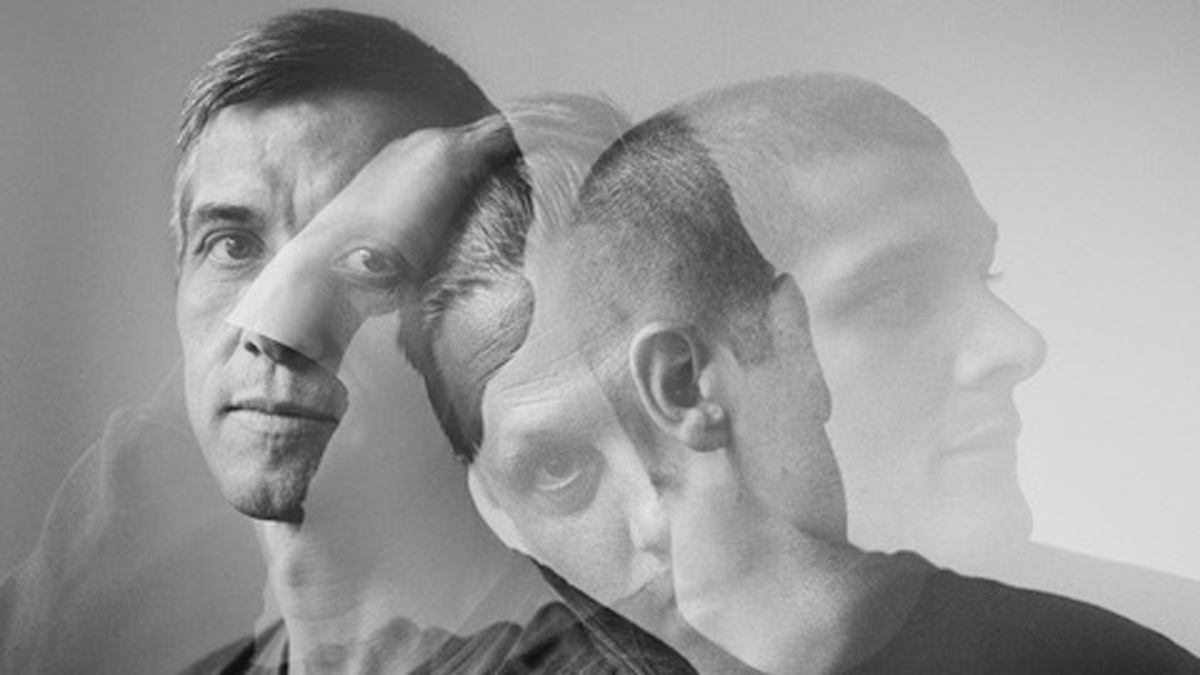Zero 7: “Trip-hop became a dirty word for some people - they called it background music”
“For a while, we just kept asking, ‘Why us? How did we sell this many records?’”

Want all the hottest music and gear news, reviews, deals, features and more, direct to your inbox? Sign up here.
You are now subscribed
Your newsletter sign-up was successful
“I’ve been very lucky during lockdown,” admits Henry Binns, one-half of Zero 7. “Me and my family moved from London to the West Country some years ago, so we had a garden and fresh air. Beautiful views from the kitchen window. And the best bit is that the studio is in a little annexe at the side of the house, so I was able to shut myself in there and carry on working.”
Binns and his Z7 partner, Sam Hardaker, obviously made good use of the extended studio session, putting together Shadows, a four-track EP with singer-songwriter, Lou Stone. Although there were a couple of standalone singles in 2019, this is the first ‘collection’ of new Zero 7 material in over five years.
“Work on the new EP actually started last year when I was doing some recording with Lou for another project,” explains Binns. “But when we listened back to the results, I couldn’t help but think, ‘Hang on, this sounds like Zero 7’. It shouldn’t have surprised us, really, because what we do has always been about collaboration… whether it’s with Lou, José González or Sia.”
It was Sia Furler - the Aussie singer-songwriter who subsequently went on to work with everyone from Eminem and Christina Aguilera to Beyonce and Kanye West -who provided vocals for a couple of tracks on the band’s debut album, 2001’s Simple Things. The single, Destiny, made the Top 30, propelling the album to Platinum sales and a Mercury nomination. Simple Things even cracked the US Dance Chart.
“That was like being swept up by a hurricane,” laughs Binns. “We thought we’d made an album that might sell 3,000 copies if we were lucky. We couldn’t really believe it. For a while, we just kept asking, ‘Why us? How did we sell this many records?’
We thought we’d made an album that might sell 3,000 copies if we were lucky. We couldn’t really believe it.
“It’s only now, after almost 20 years, that we can look back and analyse it objectively. Me and Sam had grown-up making chillout tapes for each other. That was the music we felt comfortable with. We understood that trip-hop - as it was known back then - can be just as profound and moving as someone screaming at the top of their voice, telling you their heart is bleeding. We were trying to make music that mattered.
“Trip-hop eventually became a dirty word for some people. They called it background music. I don’t agree. Look at the whole Balearic/Café del Mar thing. You can be sitting in a beach bar in Greece and the right music will make you think the world is a wonderful place. Pink Floyd… Bob Marley. How on earth could you call that background music?”
Want all the hottest music and gear news, reviews, deals, features and more, direct to your inbox? Sign up here.
Binns and Hardaker have been mates for most of their lives. Neither did well at school and it was Hardaker who suggested they both apply to the School of Audio Engineering, then in Holloway Road, London.
“That was where we bumped into an old schoolmate of mine, Nigel Godrich,” says Binns. “Although it was a long time before he started working with Radiohead and U2, he was already one step ahead of the game. He left the course and got a job at RAK Studios. Me and Sam spent a few months going to lectures and getting stoned, but Nigel made us realise that we probably ought to think about getting jobs, as well.”

As luck would have it, they ended up following Godrich to RAK - “We were supposed to be tape-ops, but we had no idea what we were doing!” - before all three of them decided to set up their own studio in north London, Shabang.
“When we first moved in, it was very basic,” says Binns. “Atari computer, Akai S1000 sampler, Juno-106 and a couple decent mics. We had managed to get hold of the original Trident desk from the RAK mobile, as well, which made the place look a bit more professional.
“It wasn’t long before Nigel was looking for his next challenge and suddenly announced that he was going to trek around Morocco. Which left me and Sam in the studio with loads of time to start knocking up some tunes. And I suppose that was where we began to crystallise the idea of Zero 7. Trying to work out what sound we wanted to make.”
That ‘sound’ had its first airing in 1997 when Godrich - back from Morocco and working with Radiohead - offered them the chance to remix Climbing Up the Walls from the OK Computer album. That led to more remix work and the first release under the Zero 7 name, 2000’s EP1.
Playing with a synth on screen just doesn’t feel right to me. Virtual instruments don’t feel real. I don’t believe them.
“Even after we got a record deal and things started happening, we kept the recording side of things quite old school. That’s the world we come from. When we were kids, dreaming about having our own studio, it was always full of buttons and sliders… things to hit and shake.
“And it’s still the same today, really. We still use a desk; we still use a lot of hardware. I have got some software gear - like the Arturia synths - but playing with a synth on screen just doesn’t feel right to me. Virtual instruments don’t feel real. I don’t believe them. And if I don’t believe them, it’s very hard for me to include them in a track that I’m going to put out there for people to listen to.
“One of the most important instruments for both me and Sam is records. Y’know, boxes and boxes of vinyl. OK, things have changed a lot since the early days when it was a bit of a free for all, but they’re still a huge part of our music-making process. I still love that feeling of finding an old KPM album at a car boot for 50 pence, then listening to it in the studio. You’ve got an instant vibe, instant inspiration.
Binns’ main writing tool is the piano. “And the Rhodes. Well, maybe not so much of the Rhodes these days. There was a point where the Rhodes - wonderful as it is - started to get a bit overused. Not just by us. It was everywhere. Cooking programmes, travel shows. It was all sounding a bit ‘beige’.”
There was a point where the Rhodes - wonderful as it is - started to get a bit overused. Not just by us. It was everywhere.
As with most Zero 7 projects, the new EP features its fair share of live instruments.
“Unfortunately, the annexe at my house isn’t really set up for live stuff,” says Binns, “so we head off to a proper studio. Drums, bass, strings… stuff like that. We don’t have the budget for spending days and days messing about with a snare sound, so it really is a case of getting in there and blitzing everything as quickly as possible.
“Personally, I always think we get a better sound when we record live stuff in a proper live room. On the odd occasion when I have done stuff at home, I always end up with a box-y sound that instantly makes your song sound like a demo.”
Despite the hardware heavy studio and old school attitude, Binns is quick to acknowledge that the computer remains central to the Zero 7 sound.
“The computer is as important as any instrument that we use. Well, the computer and Pro Tools. We started out with Tascam 8-tracks and Akai samplers… we can remember how hard it is to edit in the analogue world. The beauty of Pro Tools is that it reminds me of working on a tape machine, but you haven’t got the limitations of tape.
“We recorded the first album on three 8-track tape machines and when I moved from London, I brought the tapes with me. They were stored in a barn down the road, where I thought they’d be safe. Sadly, they weren’t.
“Not long back, we were asked if we wanted to do something with the first album. Revisit the tracks, have a mess around with them. So, I went down to the barn and… they’d perished. That’s it. We’ve lost the first album.
“If you are still using tape, be careful!”

